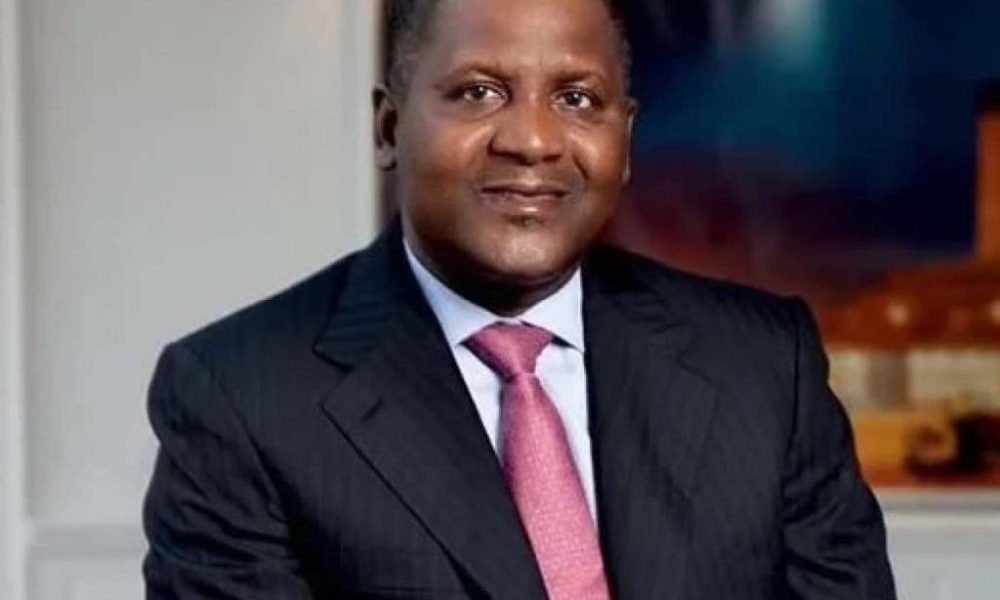The Nigerian oil and gas sector, long plagued by inefficiencies and corruption, is now witnessing a dramatic standoff between two of its most prominent players: the Dangote Group and the Nigerian National Petroleum Company Limited (NNPCL). At the heart of this brewing controversy is the truth about fuel availability, pricing, and the nation’s fuel subsidy removal. Nigerians are left wondering: who is lying?
Dangote Refinery: A Game-Changer or a Mirage?
Aliko Dangote, Africa’s richest man, has promised to revolutionize Nigeria’s oil sector with his massive $19 billion refinery, which, when fully operational, is expected to produce 650,000 barrels per day. This ambitious project has been touted as the solution to Nigeria’s decades-long dependence on fuel imports, despite being one of the world’s largest oil producers. Nigerians, tired of fuel scarcity, rising prices, and constant government mismanagement, have placed much hope in the Dangote Refinery.
But is the Dangote Refinery truly the savior it’s been presented to be? While many celebrate it as a game-changer, there are concerns over the timeline of its full operation, its capacity to meet domestic demand, and, more critically, whether it will live up to the hype or simply be another cog in Nigeria’s convoluted oil machine. With reports suggesting the refinery is not yet fully operational, the promise of lower fuel prices seems distant. Could this delay, coupled with strategic corporate maneuvers, be an attempt to control the narrative around fuel pricing?
NNPCL: The Usual Suspect
The Nigerian National Petroleum Company Limited (NNPCL), on the other hand, has a long and checkered history. From opaque dealings in fuel subsidy programs to underperformance in managing the nation’s crude oil resources, NNPCL’s reputation has often been one of mismanagement and questionable decisions. With the removal of the fuel subsidy earlier this year, the NNPCL claimed that this was a necessary move to save the country from economic collapse, but the reality on the ground has been tough for Nigerians.
Fuel prices have skyrocketed, leading to widespread frustration and protests. Meanwhile, the NNPCL’s promises of a more liberalized market, where competition would lead to better pricing for Nigerians, have yet to materialize. Instead, Nigerians are paying more for fuel than ever before, while the NNPCL continues to provide conflicting explanations on the causes of rising prices, including the high cost of importing refined products.
The Fuel Pricing Drama: Who Benefits?
One key point of contention between Dangote and the NNPCL lies in fuel pricing. Both parties have a vested interest in controlling how much Nigerians pay at the pump. Dangote, once his refinery is operational, will undoubtedly have a significant say in pricing due to its production capacity. The NNPCL, as the largest importer of refined products and a key player in the oil market, also has immense influence.
Yet, the price Nigerians pay for fuel has been caught between these two giants. The NNPCL has historically hidden behind the complexities of international oil markets and subsidy issues, often deflecting blame for high prices. Meanwhile, Dangote’s delays in refinery operations have allowed the NNPCL to maintain its import dominance, keeping fuel prices artificially high.
Nigerians Caught in the Middle
So, who is lying to Nigeria? The truth may be that both Dangote and the NNPCL are playing strategic games, each looking out for their corporate interests while the average Nigerian suffers. The Dangote Group, despite its reputation for delivering on grand promises, may be struggling with timelines and capacity issues that it has not fully disclosed. On the other hand, the NNPCL, with its history of non-transparency, has consistently shifted the blame for rising fuel prices onto external factors, while benefiting from the continued importation of refined fuel.
In the end, it is Nigerians who bear the brunt of these power plays. Until there is greater transparency in both Dangote’s refinery operations and NNPCL’s fuel importation practices, Nigerians will continue to suffer the consequences of high fuel prices, uncertainty, and mistrust.
What is needed now is not just promises but real action and accountability from both sides. Only then can Nigeria hope to break free from the chains of a dysfunctional oil sector that has held its people hostage for far too long.







